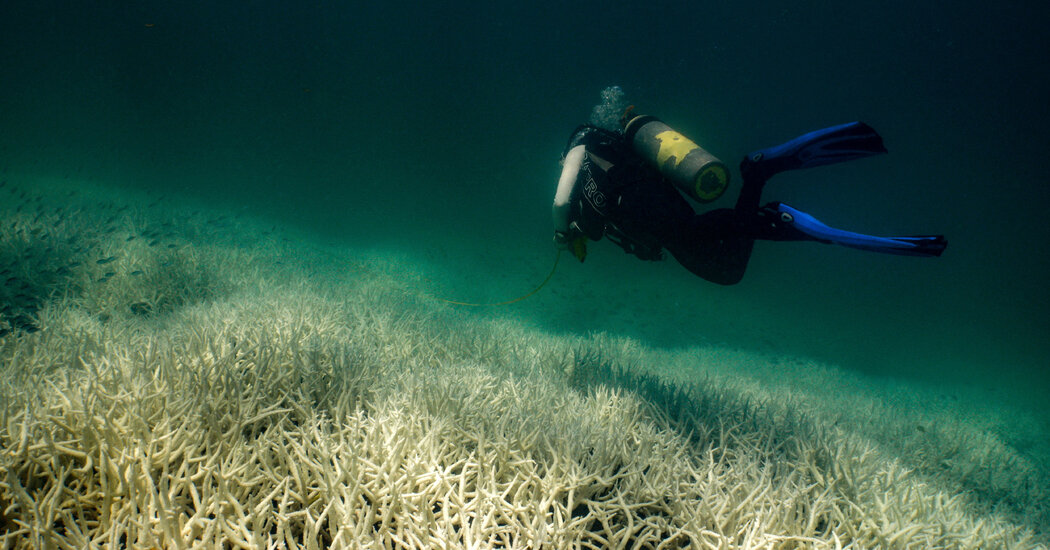Rising sea temperatures around the planet have caused a bleaching event that is expected to be the most extensive on record.
The world’s coral reefs are in the throes of a global bleaching event caused by extraordinary ocean temperatures, the National Oceanic and Atmospheric Administration and international partners announced Monday.
It is the fourth such global event on record and is expected to affect more reefs than any other. Bleaching occurs when corals become so stressed that they lose the symbiotic algae they need to survive. Bleached corals can recover, but if the water surrounding them is too hot for too long, they die.
Coral reefs are vital ecosystems: limestone cradles of marine life that nurture an estimated quarter of ocean species at some point during their life cycles, support fish that provide protein for millions of people and protect coasts from storms. The economic value of the world’s coral reefs has been estimated at $2.7 trillion annually.
For the last year, ocean temperatures have been off the charts.
“This is scary, because coral reefs are so important,” said Derek Manzello, the coordinator of NOAA’s Coral Reef Watch program, which monitors and predicts bleaching events.
The news is the latest example of climate scientists’ alarming predictions coming to pass as the planet heats. Despite decades of warnings from scientists and pledges from leaders, nations are burning more fossil fuels than ever and greenhouse gas emissions continue to rise.
